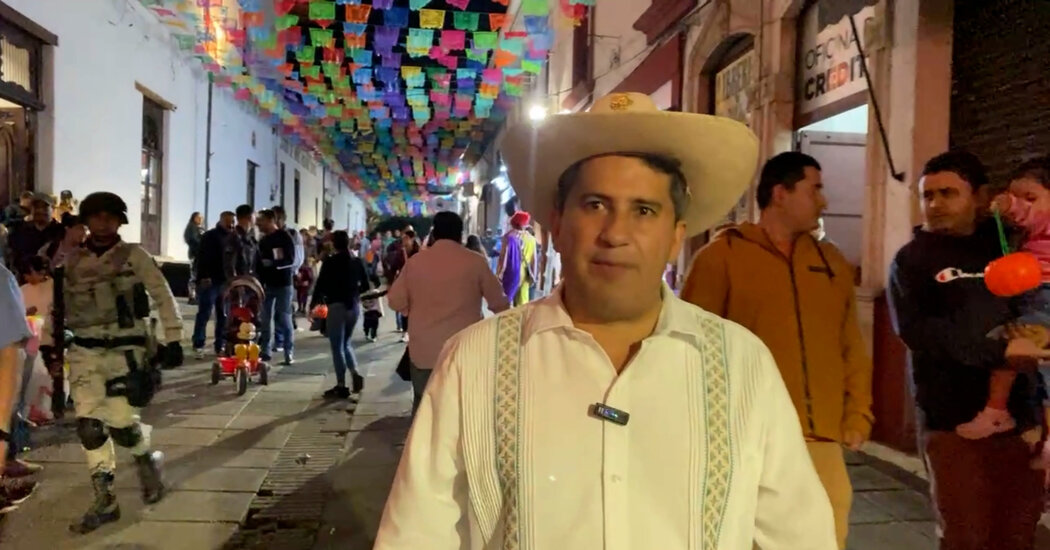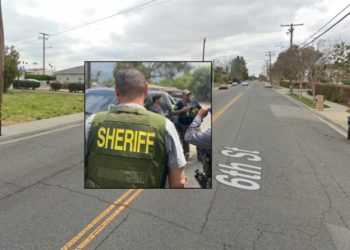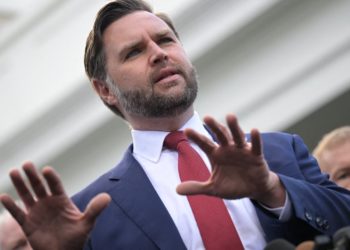An outspoken mayor in western Mexico who had repeatedly called for a harder line against organized crime was shot and killed on Saturday night while attending a Day of the Dead celebration.
Carlos Manzo, the mayor of Uruapan, had become a thorn in the side of cartels in Michoacán State, where violence among rival criminal groups and with state and federal security forces has exploded.
He often denounced criminal groups for extorting the avocado and lime producers in his city, an economic engine in Michoacán, even vowing to take lethal action against local cartels.
Mr. Manzo was also an uncomfortable figure for Mexico’s federal government. He had criticized President Claudia Sheinbaum’s strategy to curb cartel violence as a failure and demanded more power to fight back.
“We need greater determination from the president of Mexico,” he told a radio interviewer in September, adding that despite receiving threats he would not take “a single step back.”
He then reflected on his own safety. “I do not want to be just another mayor on the list of those who have been executed and had their lives taken away from them,” he said. “I am very afraid, but I must face it with courage.”
On Saturday night, while Mr. Manzo attended a candlelight ceremony as part of Day of the Dead celebrations in Uruapan, a gunman opened fire and shot him seven times, officials said. In videos of the attack that quickly spread on social media, gunfire can be heard as people run for cover.
Mr. Manzo died of his injuries at a hospital, the state’s attorney general, Carlos Torres Piña, said in a video statement. He was the seventh mayor to be killed in Michoacán since 2022.
Alfredo Ramírez Bedolla, the state’s governor, said on social media that Mr. Manzo’s assailant had been killed at the scene, adding that officials had arrested two more people in the attack.
It was not clear how many more people were believed to have been involved in the shooting, and the authorities did not lay out a motive.
At a news conference on Sunday, Mexico’s security minister, Omar García Harfuch, said that the authorities would not rule out any line of investigation.
“We send our deepest condolences to his family, loved ones and the residents of Uruapan, who today are experiencing a painful and unjust loss at the hands of organized crime,” Mr. García Harfuch said. “There will be no impunity.”
The leader of the Mexican Army, Gen. Ricardo Trevilla Trejo, told reporters that Mr. Manzo had been accompanied by a detail of 14 National Guard members and two vehicles. Additional security was provided by municipal security officers picked by the mayor.
Periodic meetings between military personnel and Mr. Manzo, General Trevilla Trejo said, had resulted in the arrest of dozens of suspects — as well as the seizure of dozens of firearms, more than 50 armored monster trucks and nearly 840 mines, drones and other explosive devices used by cartels.
Michoacán has become a battleground for some of Mexico’s most powerful criminal groups as they fight for control of the drug trade and other criminal enterprises.
Last year, a journalist was fatally shot moments after he interviewed Mr. Manzo in Uruapan. Last month, a prominent lime grower was found dead after denouncing extortion rackets. Mr. García Harfuch said during the news conference that at least one Mexican soldier had been killed during a recent confrontation with cartel members and that two police investigators had been kidnapped.
Mr. Manzo had been a loud critic of Ms. Sheinbaum’s approach against organized crime and had demanded more help from federal authorities.
His criticism mostly focused on the strategy she has pushed for: prioritizing the use of intelligence and investigation over directly combating crime, as well as ensuring strong coordination among security agencies and addressing the root causes of violence.
The goal, Ms. Sheinbaum has said, is partly to avoid the direct confrontations and the mass casualties that plunged Mexico into a blood bath after the government declared war on the cartels in 2006.
Mr. Manzo’s stance was radically different. He openly publicized the discovery of mass graves and what he described as cartel-run training camps in Uruapan. And he supported the idea of killing individuals suspected of attacking civilians or the authorities.
His words earned him the nickname of “Mexican Bukele” — after the Salvadoran leader Nayib Bukele, who has led a violent crackdown on his country’s criminal gangs, drawing widespread human rights concerns.
“If someone is opening fire on the civilian population, we are going to take them down,” Mr. Manzo said at a public event in May. “And if that’s a crime, then we’ll defend ourselves in court. Or we’ll pay the price in prison.”
He then referred to Ms. Sheinbaum, who condemned his killing on Sunday.
“If she thinks she’s going to detain these criminals without a single shot fired and that they’ll just turn themselves in, well, she should get it done,” he said. “And believe me, if she manages to do that, I will immediately submit my resignation.”
Andrés R. Martínez, Miriam Castillo and Cyntia Barrera Díaz contributed reporting.
Emiliano Rodríguez Mega is a reporter and researcher for The Times based in Mexico City, covering Mexico, Central America and the Caribbean.
The post Outspoken Mexican Mayor Who Declared War on Cartels Is Killed appeared first on New York Times.




